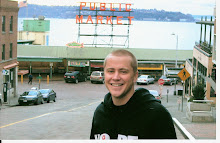Where has the time gone? A lot has changed with work and life in the past few months so let me get you up to speed.
Before leaving for vacation in December I found out that my counterpart was taking a job in Kigali and would no longer be working with AEE. I was surprised and somewhat worried about my role with my organization. He was the one who, from the first day, understood what it meant to be a PCV and how to incorporate me into the job activities. After returning from vacation to find out even more colleagues were taking new jobs, I questioned whether or not I should ask for a new assignment or direction in my work. However, my frustrations or worries were appeased when the new hire, my new counterpart, was brought in. He has hit the ground running, motivated, and understanding that we both have a lot to learn from each other. With his presence, I’m much more comfortable working as a PCV, co-facilitator, co-learner, working with the staff and our beneficiaries, not for them.
The direction of our work activities has also shifted, which has brought new and exciting activities to the work assignment. Continuing to work with the internal savings and lending groups and cooperatives, we are now in the business of monitoring progress, helping them with action and business planning, and organizing farmer field school trainings (coming soon!). To give you an idea of the challenges this entails here is a brief description of one of our coops and the issues they face. Coop #2 (we’ll call them) is a group of nearly 60 HIV positive members who are divided into 3 savings and lending groups, based on the cell or village they live in. Within their groups they save and lend with the money they earn from farming and selling items in the market. As a cooperative, they have 2.5 hectares of land in which they had planned to grow irish potatoes, sorghum and beans. The Rwandan government has subsidized these crops though so more people are growing them, which has reduced their sales and expected profit. Coop #2 then decided to switch to growing maize, but unfortunately the rains this year were not enough to produce a sizable crop to feed families and sell in the market. To make matters worse the maize they purchased was a hybrid (which was supposed to withstand harsher conditions), and thus they won’t be able to use the inputs to plant a second crop. In addition to growing maize, they would like to grow passion fruit (marakuja) for their own health, but face problems with the acidity of the soil. In order to buy inputs (lime) they need money, but without a crop to sell they don’t have many options. As you can see the list of challenges is daunting and overwhelming. Where do they start at solving their problems? What is our role in this process?
Starting with the organization of savings and lending groups was the first step. It will be the tool that, when run effectively, will help even small sums of money grow to hopefully buy the inputs they need. In order to make sure these inputs succeed though, we need to work with them on cultivating crops that they know how to cultivate (and cultivate well) and which are nutritious, profitable, and marketable. The rule of thumb, is produce what you can sell, don’t try to sell what you can produce. This will include a farmer field school training, which is not about teaching farmers how to farm, but bringing them together to discuss best practices, new methods, and helpful techniques. Simple methods such as using compost, which helps soil retain moisture and provides nutrients, is more than just throwing piles of food scraps in hole. Some farmers know this, while others don’t. If we can create a forum for this discussion, ideas and best practices will be spread faster, will be much more relevant to their land, and will decrease any sense of dependency on outside organizations.
This coming May, will be the one year mark since the program started which coincidentally will be my one year anniversary at site. I’m of course looking forward to saying I’ve lived and worked here for a year, but also to see the progress and difference one year can make. Development takes time, and I’m not under an illusion that anyone’s problems will have been solved. However, if even one of the challenges mentioned above can be addressed, I know this program is on the right track.
Subscribe to:
Post Comments (Atom)


Ryan - What an incredible experience for you and all involved. You are probably aware of The Land Institue, but I'm enclosing a link just in case. There may be helpful info on their website. I am so proud of you! :)
ReplyDelete